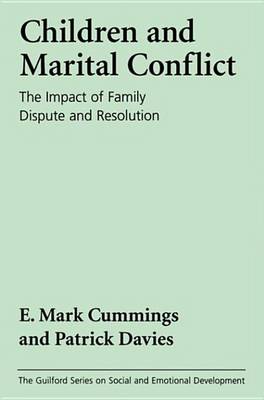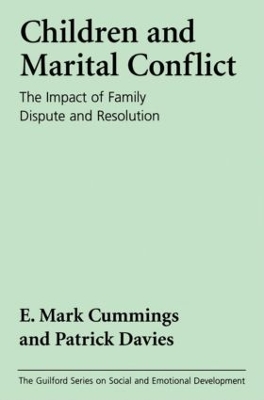Guilford Series on Social and Emotional Development
2 total works
From leading researchers, this book presents important advances in understanding how growing up in a discordant family affects child adjustment, the factors that make certain children more vulnerable than others, and what can be done to help. It is a state-of-the-science follow-up to the authors' seminal earlier work, Children and Marital Conflict: The Impact of Family Dispute and Resolution. The volume presents a new conceptual framework that draws on current knowledge about family processes; parenting; attachment; and children's emotional, physiological, cognitive, and behavioral development. Innovative research methods are explained and promising directions for clinical practice with children and families are discussed.
The effects of parental discord on children's development has long been debated, with research in the field increasing dramatically in the past decade. Integrating and systematizing these findings, this book provides up-to-date descriptions of the causes and consequences of family conflict. For professionals interested in the family, the book describes how parents can handle their differences more effectively, and offers insights into the outcomes that are related to styles of family dispute. Other highlights include process and systemic perspectives; models of family and marital relations; illustrative case examples; reports on children's responses in laboratory and field studies; bottom?line prescriptions for parents, family therapists, and educators; and directions for future research. This book will be of great interest to family educators and family?policy makers, psychotherapists, social workers, family researchers, and parents. It is appropriate for courses on marriage and the family, child development, and family education.

